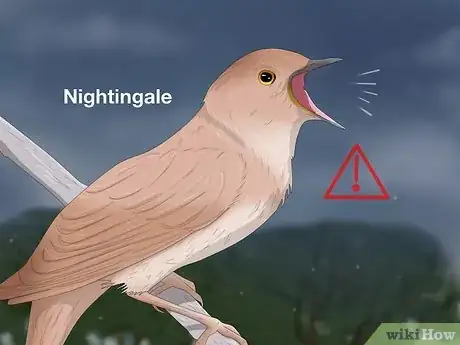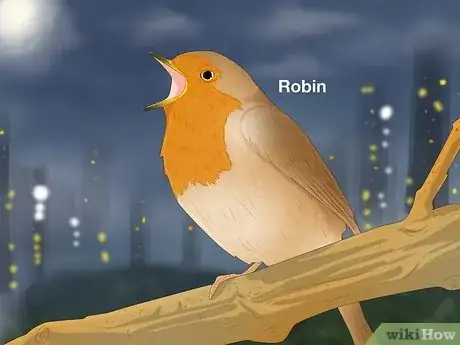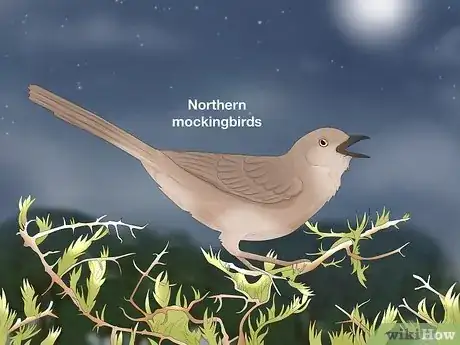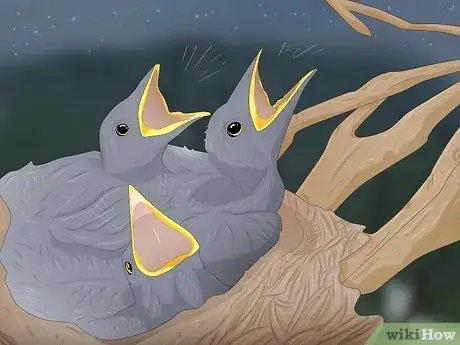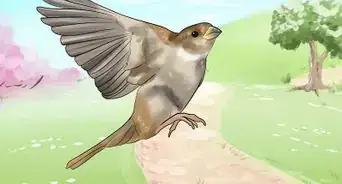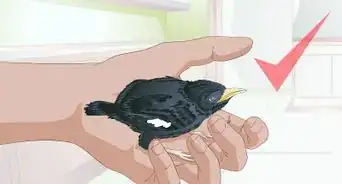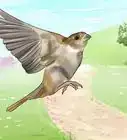This article was co-authored by wikiHow staff writer, Amber Crain. Amber Crain has been a member of wikiHow’s writing staff for the last six years. She graduated from the University of Houston where she majored in Classical Studies and minored in Painting. Before coming to wikiHow, she worked in a variety of industries including marketing, education, and music journalism. She's been a radio DJ for 10+ years and currently DJs a biweekly music program on the award-winning internet radio station DKFM. Her work at wikiHow supports her lifelong passion for learning and her belief that knowledge belongs to anyone who desires to seek it.
Learn more...
Birds are famous for chirping at sunrise, but they sleep during the night—right? Hearing midnight chirping can be a little unnerving since most of us don't expect it, but it's actually quite common (especially in the spring). In this article, we'll discuss the nighttime habits of nocturnal and diurnal birds, explain why your backyard birds are being so vocal after dark, and include a few tips for getting them to quiet down. Keep reading for our complete guide!
Things You Should Know
- Birds chirp at night to call for potential mates and defend their territory, especially in the spring (since that's breeding season).
- Migrating birds maintain communication during the night by chirping at each other.
- Baby birds chirp at night to get their parents' attention, and many young birds learn how to sing after dark.
Steps
References
- ↑ https://academic.oup.com/condor/article/114/2/245/5152729?login=false#126293665
- ↑ https://abcbirds.org/blog20/nighttime-singers/
- ↑ https://birdwatchingnation.com/why-do-birds-chirp-at-night/
- ↑ https://www.rspb.org.uk/birds-and-wildlife/wildlife-guides/birdwatching/bird-behaviour/why-do-birds-sing-at-night/
- ↑ https://www.rspb.org.uk/birds-and-wildlife/wildlife-guides/birdwatching/bird-behaviour/why-do-birds-sing-at-night/
- ↑ https://academic.oup.com/condor/article/114/2/245/5152729?login=false#126293665
- ↑ https://abcbirds.org/blog20/nighttime-singers/
- ↑ https://www.rspb.org.uk/birds-and-wildlife/wildlife-guides/birdwatching/bird-behaviour/why-do-birds-sing-at-night/
- ↑ https://www.audubon.org/magazine/september-october-2013/listening-migrating-birds-night-may

